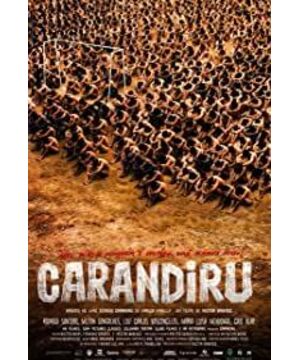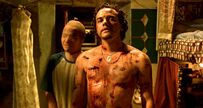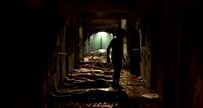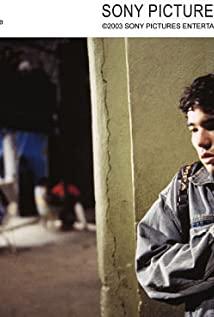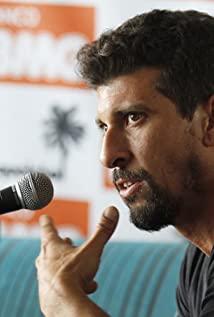The film cuts from the perspective of a personable, idealistic and sentimental surgeon. Doctors entered the prisons where drug addicts and AIDS patients gathered, wanting to control the spread of AIDS and improve the sanitary conditions of the prisons. Prisoners received physical examinations one after another, told their stories to the doctor, and obtained psychological comfort. I thought this time it was a story of personal heroism about the radical transformation of the entire prison under the influence of the doctor and the reformation of the prisoners. It was a chicken soup for the soul, but I was wrong. Doctors can only listen to the past of these people and cannot change their future. No Way and Lady Di are the ones who are most affected by him in the film. Lady Di got the report that the AIDS test was negative, and No Way learned it. Basic medical knowledge can go out to open a clinic, and the two get married under the doctor's notary. This is the last good thing left in the film's ending. Another glimmer of hope left by the film is that the teenager who scored the crucial goal in a football match survived the bloody crackdown. From the very beginning of the violent conflict, he knew that he should avoid and not blindly join the war. Witnessing the brutal repression, he kept praying that he would survive and return to his family. He represented the sobriety of the minority in the collective unconsciousness.
What shocked me the most about the movie was the comparisons.
I am deeply saddened by the encounter between Zico and Deusdete. Zico has never felt that he is a big villain, because he is only a drug dealer and has never killed anyone, and his good friend Deusdete is different from him. He has two lives in his hands. In fact, Deusdete was just defending the duo who bullied his sister. Apart from that, he was kind and didn't do anything bad. ZIco, who thinks he has never killed anyone, so he is not a villain, wants to punish Ezequiel for not repaying the money he owes, but he does not have the heart to kill him, just to maintain his authority in the prison as a last resort. The "keeper of order" in the prison pleaded for the power to kill Esequiel and was granted permission. However, until he was brutally murdered himself, he was unable to kill anyone except his best friend Deusdete. In a hallucination after taking drugs, he dumped a large pot of boiling water on the face of a sleeping Deusdete, who ended his life with a heart-wrenching scream, along with his dear mother, sister and a A girl who is willing to wait for him to be 45 years old. Coincidentally, it was Zico who saved Deusdete's life when Deusdete drowned while three of his childhood friends were swimming in the river together. In this hot and cold water, life and death are staged. After Zico was killed in the most brutal way by a mob, someone took off his hat and his hair had grown a little longer. His most beloved girl said to him when he visited the prison: "Let's grow your hair long after you get out of prison." Although he said at the time that he didn't believe in the promise, and his lover scolded him for changing, who knew that he didn't quietly keep this promise in his heart? What about this promise? These comparisons make me feel deeply that good luck makes people.
I was also shocked by the right and wrong views of the various prisoners in the film. Every time I hear a prisoner tell his story, I am always amazed that these people think so! There is really no right or wrong at all! Maybe it's a collective unconscious. They don't know what is good and what is evil, and for most of them, they don't know what guilt is. Before watching this film, I never thought that people's view of right and wrong can still be like this. In the film, two women of different skin tones compete for a tall man, which also surprised me and my classmates. Such a bad man is still being robbed.
After the violent crackdown at the end of the film, the camera shot a close-up of the stairs of the prison. The thick and dry blood was wrapped in foamy soapy water and slowly flowed downstairs in red and white in an attempt to wash away the blood, but these bloodstains may be difficult to wash. Net, this bloody page is also irreversible in history, even if the government remains silent on it. Recalling the last time I cleaned the floor, I also featured a close-up of the white soapy water flowing down the stairs step by step, or simply cleaning. Excited and noisy with cleaning tools. Comparing the two, things are different.
There is so much to say about this movie, everyone's story is different, each has its own ups and downs. I chose a few young people's stories to tell, thanks to the film for showing us a cruel world, but also giving us some hope.
View more about Carandiru reviews


